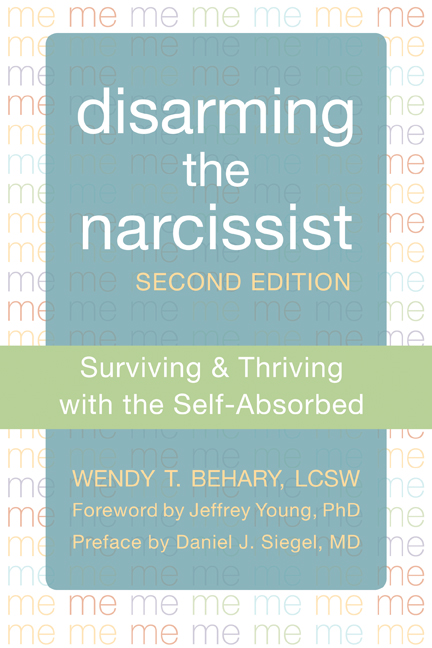By Wendy T. Behary, LCSW
Most narcissistic clients will only reluctantly agree to go to therapy if a significant person in their life is threatening to leave them, or if someone is threatening their comfort, their reputation, or their status if they don’t.
The amount of leverage, or “meaningful” consequences the narcissist faces helps determine the possibility of maintaining the motivation and compliance necessary for achieving an effective treatment outcome. Additionally, the therapist needs to cultivate a robust connection with this client, as narcissists are more prone to disappearing into a state of hyper-autonomy, entitlement, and self-aggrandizement. Therapists must be sturdy enough to show up as a “real” person, not just an expert, to bypass the cynical, approval-seeking, charming, defiantly avoidant, and tough-guy modes. The therapist engages in a (limited) re-parenting advocate for the vulnerable part of this larger-than-life client, hidden behind the “masks.”
Keep the Leverage High
The therapy relationship becomes a microcosm for the narcissist’s real-world relationships. It is also the platform for creating corrective emotional experiences without devaluing an often highly sensitive individual. The therapist uses moment-to-moment experiences to consistently point out relevant possibilities of loss and predictable consequences if they refuse to do the emotional work, thus fortifying the leverage for change.
Keep a Robust Connection
The use of an audio flashcard can help to strengthen the internalization of a healthy adult’s response under triggering conditions, while acting as a custom-fit transitional object for the mid-session days. It provides a lively attachment to the therapy relationship and keeps the client connected to relevant treatment goals—goals that often emerge within the domain of interpersonal ruptures with loved ones and others. It takes only a couple of minutes to record (in front of the client) reminders, praise, practice exercises for homework, etc. that they can listen to throughout the week, in-between sessions.
Keep a Sturdy “Realness” in the Treatment Room
As therapists, we are accustomed to keeping ourselves current with literature and our treatment approaches. Working with narcissists may be one of the toughest challenges we face in our industry. They can push our buttons like almost no other client. Here are some suggestions for how to become more sturdy, credible, and sensitive to the needs of these unruly types:
- Enter into self-therapy in supervision, or psychotherapy
- Engage in continuing education about narcissism and the fragile world that lies beneath the facades
- Consider the use of their childhood photos to assist you in maintaining a view of the narcissist as vulnerable at the core, while empathically confronting them
Wendy T. Behary, LCSW, is founder and clinical director of the Cognitive Therapy Center of New Jersey and a faculty member at the Cognitive Therapy Center and Schema Therapy Institute of New York. She is also a distinguished founding fellow of the Academy of Cognitive Therapy. She maintains a private practice, specializing in narcissism and high-conflict couples therapy.



 2024 Peace Playbook: 3 Tactics to Avoid Clashes with Your Partner
2024 Peace Playbook: 3 Tactics to Avoid Clashes with Your Partner